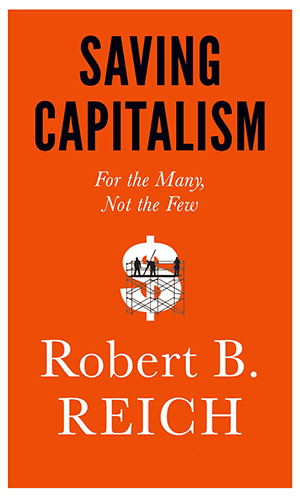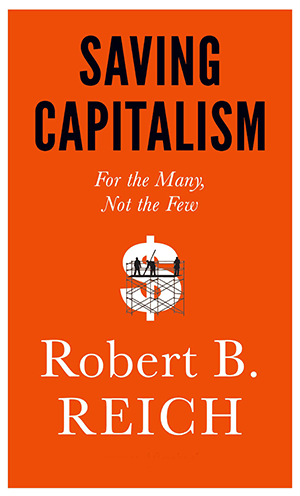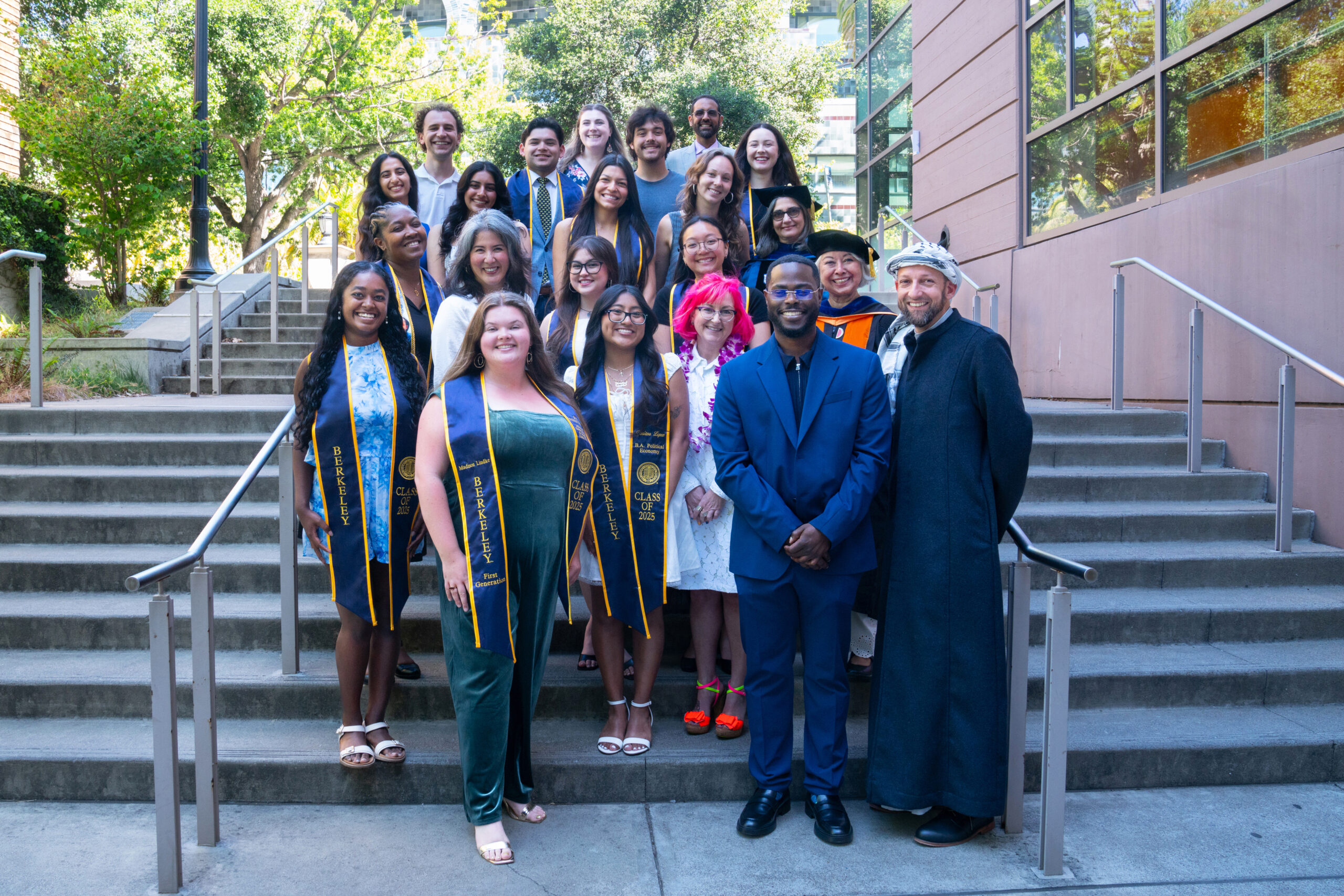By Tamara Straus
 Robert B. Reich is among America’s first multi-platform public intellectuals. The Blum Center’s Senior Fellow and Chancellor’s Professor of Public Policy has written 12 books, is a constant producer of videos and movies, and has a massive Facebook audience, thanks to his rapid-fire production of commentaries and blogs. At 69, after decades of public service as a public university professor and government administrator (most notably as President Clinton’s Secretary of Labor), his work life has become even more ambitious—to unveil and correct what he sees as the imperiled state of American democracy.
Robert B. Reich is among America’s first multi-platform public intellectuals. The Blum Center’s Senior Fellow and Chancellor’s Professor of Public Policy has written 12 books, is a constant producer of videos and movies, and has a massive Facebook audience, thanks to his rapid-fire production of commentaries and blogs. At 69, after decades of public service as a public university professor and government administrator (most notably as President Clinton’s Secretary of Labor), his work life has become even more ambitious—to unveil and correct what he sees as the imperiled state of American democracy.
The Blum Center sat down with Professor Reich to talk about his latest book, Saving Capitalism: For the Many, Not the Few. In it, he passionately argues that the U.S.’s current political polarization stems from the wrong argument. Americans should not be choosing between “big government” and “small government” or the degree to which we should promote a “free market”—they should be debating the benefits of a market organized for more inclusive prosperity or one designed to deliver the most gains to the top. Written at a time when the United States faces the greatest income inequality and wealth disparity in 80 years, “Saving Capitalism” aims to lay out what’s at stake for the present and the years ahead.
You write that you are confident we can save capitalism from its own excesses and return to a period of fairer distribution of wealth. But how do you remain confident when, for example, Thomas Piketty argues in his best-selling Capital in the Twenty-First Century that an ever-rising concentration of wealth is not self-correcting (and does it through data going back 250 years)?
Piketty focuses only on wealth concentration, not income concentration. Yet the central feature of inequality in America is income concentration. And the good news is America has repeatedly reformed itself with regard to excessive concentration of income and its attendant political consequences. We did so in the Jacksonian era (the 1830s), the Progressive era (1901 to 1916), the New Deal (1933 to 1939), and, to some extent, in the Great Society (1964 Civil Rights Act, 1965 Voting Rights Act, 1965 Medicare and Medicaid). In other words, we have a strong track record of expanding the circle of prosperity when capitalism gets off track.
Which group of Americans would you most like to reach with this book?
I want to reach average Americans who are confused and frustrated about the current political-economic system, who don’t want to scapegoat immigrants or the poor for their problems, and who are open to uniting with others in order to mobilize and organize a movement to regain control over our democracy and make our economy work for the many rather than the few.
You write that widening inequality has become “baked into” the building blocks of the free market itself. Why don’t more people understand that?
Because the rules that define the basic building blocks are hidden from view, and most people don’t see them or understand them. Most people don’t understand that the rules that define intellectual capital—what can be patented and for how long—have been tilted in the direction of the owners of intellectual capital and against consumers, for example; or how the rules and laws governing contracts have changed (allowing much more leeway for insider trading than ever before, for example); or how the bankruptcy code has been rewritten to favor large corporations over homeowners and student debtors; and so on.
What do you think is the most controversial argument in Saving Capitalism?
Nothing should be controversial in a partisan sense. On this book tour, I’ve talked with many people who call themselves “conservative Republicans” who agree with almost every point I make. They want to end crony-capitalism; they think the biggest Wall Street banks are way too big; they’re opposed to “corporate welfare”; they want to get big money out of politics. Recently a self-described “conservative economist” who had been asked to debate me on a radio show confessed on the air that he agreed with almost all of the book, and praised it. Even my political point—that we need to reestablish what John Kenneth Galbraith once described as “countervailing power”—is not really controversial. I don’t condemn big corporations, big banks, CEOs, or wealthy individuals. My concern is that political power has become too concentrated in the hands of too few, and we need to reestablish countervailing power—perhaps not the same sources of countervailing power as we had in the 1950s and 1960s, but new sources that act as a check and balance upon concentrated power.
What is the best case and worst case scenario for our future political economy?
The best case is we enter another phase of reformist populism, as we have done at least four times before in American history. The worst case is we succumb to authoritarian populism—the quest for a “strongman” who will get the job done, even at the cost of our democratic institutions. So far, America hasn’t succumbed to authoritarian capitalism, although other nations have. But the current path we’re on is not sustainable. One or another—reformist populism or authoritarian populism—will manifest itself over the next two decades.
For more information or to order a book: http://robertreich.org/savingcapitalism




